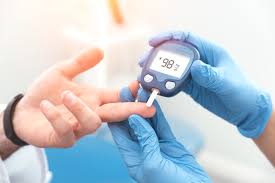
Study Shows National Diabetes Prevention Program Reduces Medical Costs for Prediabetes Patients
A recent study published in Diabetes Care reveals that participants with prediabetes enrolled in the National Diabetes Prevention Program (NDPP) experience a significant reduction in medical expenses over two years. The research highlights the program’s potential to reduce healthcare costs while addressing the growing burden of prediabetes in the United States.
The study, led by Shihchen Kuo from the University of Michigan, examined the real-world cost-effectiveness of the NDPP. Analyzing health insurance claims and survey data from 5,948 adults with prediabetes, researchers compared outcomes for those who participated in the NDPP (575 individuals) with those who did not (5,373 individuals).
Findings showed that each NDPP participant saved an average of $4,552 in total direct medical costs over two years compared to nonparticipants. The cost savings were primarily driven by reductions in hospitalizations, outpatient visits, and emergency room visits. However, the study found no significant differences between the two groups in terms of health-related quality of life, as measured by the EuroQol 5-Dimension 5-level questionnaire, or in quality-adjusted life-years (QALYs) gained during the same period.
The analysis also indicated an 88% probability that the NDPP saves money and an 84% probability of being cost-effective at a willingness-to-pay threshold of $100,000 per QALY gained.
The study underscores the broader potential of the NDPP. “If delivered to a larger prediabetes population with longer-term follow-up, the NDPP could potentially reduce healthcare costs and improve QALYs for millions of American adults with prediabetes,” the authors wrote.
As prediabetes affects an estimated 96 million American adults, initiatives like the NDPP may prove crucial in curbing the progression of diabetes while alleviating the financial strain on the healthcare system.